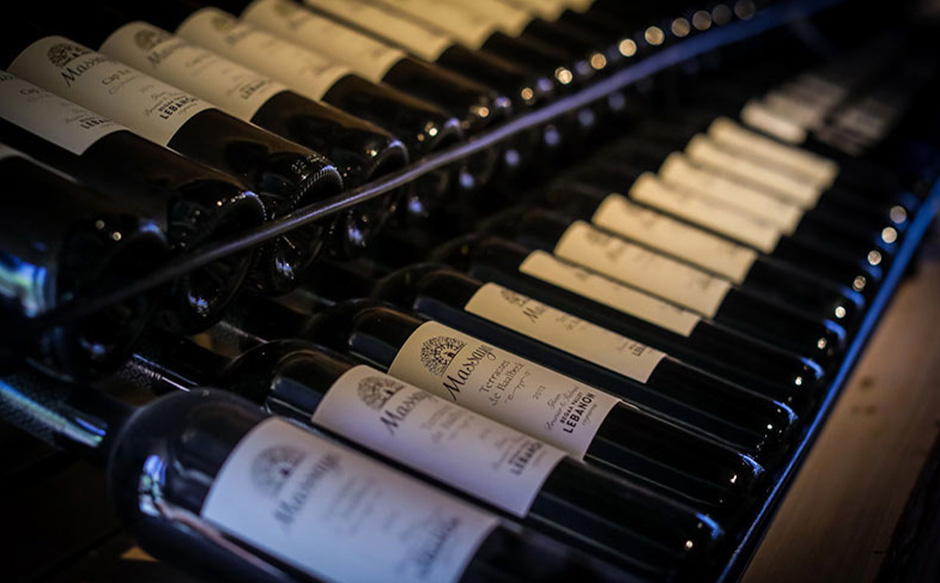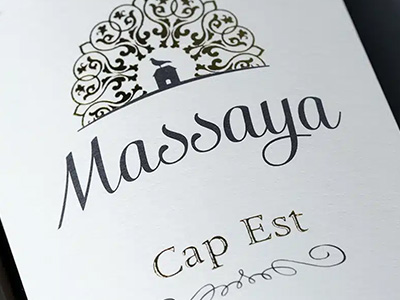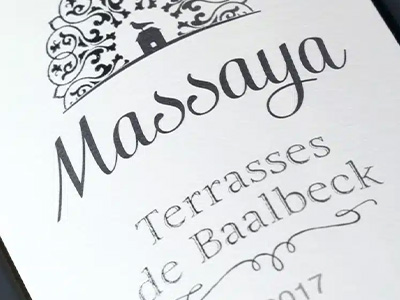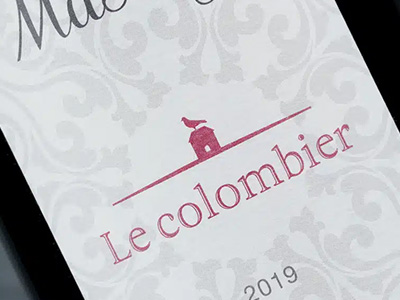Massaya
Massaya is the essence of modern-day Lebanon. Through the quality of their wines, the native flavours of the food and the warmth of hospitality, they deliver a message of refinement, happiness and welcome.
Drawning on the experience of two French partners, Dominique Hebrard in Bordeaux and the Brunier family in Chateauneuf-du-Pape, The Ghosn brothers describe themselves as winemakers of Lebanon, taking advice from others but making their own styles of wine.
One of the great monuments to our art is the Temple of Bacchus on the impressive Roman site at Baalbeck. Although the Phoenicians mastered early age vine farming and wine making and anchored Lebanon as a wine cradle, the temple stands as a tribute to the importance of vines in that countries culture.
In 1990, the countryside house of the family in the Beqaa at Tanaïl had been abandoned to civil war and was inhabited by several families of squatters. Vegetation was scarce as the wells were damaged and the fence non-existent. It took the Ghosns’ best negotiating skills to reclaim the land.
In 1997 only a few historical wineries were in control of all the wine production in Lebanon and no one challenged these household staple brands, but the Ghosns and the French partners believed they could join this small wine market on the condition that Massaya focus on quality and keep the size of the winery and vineyards human.
So in 1998, the first new generation winery was launched that marked the renaissance of winemaking in Lebanon. From just four wineries in 1998, now Lebanon has more than 45 wineries.It took several years for the Ghosns and their French partners to detect the right terroirs and grape varieties.

Some 10 years on, the Ghosns and the partners realized that the qualitative way forward should be based on new principles: The grapes varieties should be resistant to climate change: that is, able to withstand more heat and longer dry seasons.
The terroirs in the Beqaa are not homogenous and some zones, noticeably in the north, have the highest potential and deserve to be singled out.
The final say in winemaking and the blending should be in the hands of the Ghosns in order to avoid replicating the Rhone or Bordeaux wines.
These principles gradually took shape in a challenging project: Massaya Faqra, the new horizon for Massaya in 2015-2025.
Until recently Massaya’s vineyards have solely been located in the fertile Beqaa Valley, at an altitude of 1000 metres above sea level. At these Tanaïl vineyards the slopes are protected by Mount Lebanon and the Anti-Lebanon mountains.
Free of frost and disease the Beqaa Valley enjoys a unique climate with long gentle summers, wet winters and an average temperature of 25ºC, perfect for viticulture. However, over the last seven years Sami and Ramzi together with Frédéric and Daniel Brunier, have developed Massaya vineyards in the more extreme, mineral areas of the Beqaa valley, moving onto hillside sites to the North East (Ras Baalbek) and North West (Hadath Baalbek), as well as further north of Baalbek.
These vineyards are planted with Grenache and Mourvèdre. In July 2014 Massaya opened their new high altitude winery in Faqra on Mount Lebanon.
It is situated 1750 metres above sea level, at the foothills of the Mount Lebanon ski resorts. It overlooks Faqra, the highest altitude Roman temple in the world, and across the horizon it has views over the Mediterranean.
The Massaya Faqra winery is used for the vinification of the white wine, as well as for the maturation of some of the red wines.
Massaya’s reputation has developed further with the arrival of the spectacular Cap Est. Grapes for the wine come from a 7 hectare chalky site on the hillsides in the most north-easterly portion of the Beqaa Valley at an altitude of 1,200m, in the Ras Baalbek area.
Discover Other Winemakers
- Barton Vineyards
- Bodega Biurko Gorri
- Bodega Lagarde
- Bodegas Piqueras
- Bodegas del Medievo
- Château du Donjon
- Château La Bastide
- Château Lamothe
- Dezat Frere et Soeur
- Domaine André Colonge
- Domaine Chéreau-Carré
- Domaine Christian Moreau
- Domaine Christophe Patrice
- Domaine Jean Collet et Fils
- Herdade do Mouchão
- Josef Ehmoser
- Joseph Perrier
- Massaya
- Oliver Zeter
- Paxton Winery
- Ramos Pinto

Cap Est
Massaya
Massaya Cap Est is pale ruby in colour, with a nose that subtly blends violets and very ripe red berry fruits. On the palate, seductive velvety elegance overlays an attractive weave of fine tannins, highlighting the minerality of the terroir. A seamless wine combining power and elegance beautifully.
READ MORE
Terrasses de Baalbeck
Massaya
The nose is of fresh scrubland with a hint of jujube, while its finesse and elegance are clear as soon it touches the palate. A ‘powerful and muscular’ red wine, similar in style to the famous Musar, with tannins that reflect its potential for cellaring.
READ MORE
Le Colombier
Massaya
Le Colombier is modern and approachable, with a nice depth of flavour in a fresh, thirst-quenching wine for everyday drinking. Distinguished by hints of spice and pepper, drink when young to fully enjoy its fruit.
READ MORE